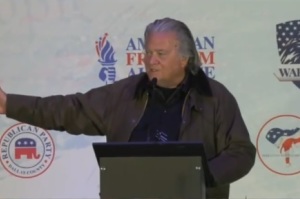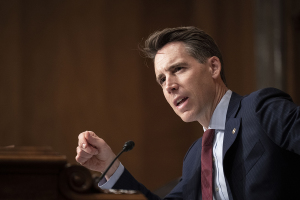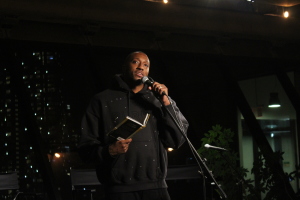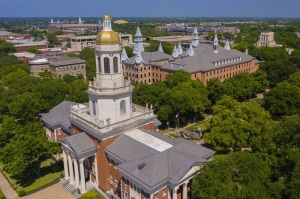Official Recognition Eludes Christian Groups in Bhutan
THIMPHU, Bhutan - Bhutan officials have given assurances that freedom for Christians to worship "within the cultural norms" of the tiny Buddhist nation in the Himalayas will not be violated, but they remain ambiguous on whether and when the miniscule community will obtain legal identity.
The cultural norms include a prohibition against proselytizing. But Bhutan Minister for Home and Culture Lyonpo Minjur Dorji told Compass there are provisions in the Constitution of Bhutan that can be interpreted as allowing room for Christianity in "the Land of the Thunder Dragon," as the country is called.
The country's agency regulating religious organizations was expected to make a decision last December on whether it could register a Christian federation representing all Christians, but an official at the agency said the matter requires further investigation. Meantime, Home Minister Dorji indicated no change was necessary.
"What else do you need?" he said. "Ask Christians if they have been prevented from meeting together for worship. Two of our parliamentarians are Christian. Christians need not fear the government."
He added that Article 3(2) of the constitution states, "The Druk Gyalpo [the King of Bhutan] is the protector of all religions in Bhutan," and Article 7(4) states, "A Bhutanese citizen shall have the right to freedom of thought, conscience and religion."
Dorji Tshering, member secretary of the regulatory authority locally known as Chhoedey Lhentshog, had earlier told Compass that the agency was likely to discuss and allow registration of a Christian federation at its meeting last December. (See "Legal Status Foreseen for Christianity in Buddhist Bhutan," Nov. 4, 2010.)
Last week Tshering told Compass that "certain issues" needed to be looked into before a decision could be made.
"The intent of the Religious Organizations Act of Bhutan [under which the regulatory authority functions] is to protect and preserve the spiritual heritage of Bhutan," he said. "We need to see if such preconditions can be met if we register a Christian organization."
Bhutan's constitution states that Buddhism is the "spiritual heritage" of the country.
The Religious Organizations Act, enacted in 2007 and implemented in 2009, states that one of its main objectives is to "facilitate the establishment of ROs [religious organizations] in order to benefit the religious institutions and protect the spiritual heritage of Bhutan."
The act also stipulates that registered organizations will not "compel any person to belong to another faith, by providing reward or inducement." The government is also in the process of introducing a clause banning conversions by force or allurement in the country's penal code.
Penden Wangchuk, secretary of the Ministry of Home and Cultural Affairs, said the international community was mistaking lack of legal identity for Christianity in Bhutan with illegality.
"The issue concerning granting registration rights to Christians is not about legality or illegality of Christianity," Wangchuk said. "They are free to practice their religion. Their existence is not against the law."
Most Christian leaders in Bhutan who met with Compass agreed that they enjoyed certain freedoms to practice their faith, and that their leaders were trustworthy. Some pointed out, however, that it was not clear if propagation of faith, publishing of books and the right to Christian burial were allowed in the country.
While Christians meet in house churches, there is no church building, Christian bookstore or Christian cemetery in Bhutan.
Around 75 percent of the 708,484 Bhutanese are Buddhist, according to Operation World. Hindus, mainly ethnic Nepalese, constitute around 22 percent of the population and have a majority in the south. It is estimated that Bhutan has between 6,000 to nearly 15,000 Christians (the latter figure would put Christians at more than 2 percent of the population), mostly from the south.
Hindus have a legal entity under the federation of Hindu Religion Community (Hindu Dharma Samudaya) of Bhutan, which was registered with the Chhoedey Lhentshog authority along with Buddhist organizations over a year ago.
Officials maintain, however, that there is no difference between freedoms for Hindus and Christians. Asked if Christians could legally publish books for religious education though they are not registered, Home Secretary Dorji said, "If a book seeks to promote good values based on Jesus' teachings, no one will have any objections."
Tshering of the regulatory agency Chhoedey Lhentshog agreed.
"Teachings of Jesus like not letting your right hand know what your left hand is doing are good," he said. "There is no problem in publishing books on such values."
On Christians' right to burial, Dorji said he has been trying to find a solution.
"Our constitution says that 60 percent of the land will remain under forest cover at all times, and the government has decided to demarcate instead 70 percent of the country's area as forest," he said. "Moreover, the Buddhists believe that mountains are sacred, and no bodies should be buried there. So where do we have the land [for a cemetery]?"
Dorji said he would like to encourage Christians to cremate their dead, "which is more environment-friendly. We are trying to convince even Buddhists and others to use that method."
Local newspapers have reported on several incidents of secret Christian graves being exhumed and skulls and thigh bones extracted by some religious cults for Buddhist rituals. While most Christians take bodies across the border to the neighboring Indian town of Jaigaon, some take them to nearby jungles for burial.
On the Christians' right to propagate their faith, Home Minister Dorji said he suspected inducement to convert.
"We have found that most of the Bhutanese who have converted to Christianity are very poor," he said. "This shows that some are giving monetary benefits to convert them."
The minister also claimed that the government had evidence of Christians using money to lure people into converting.
Godfrey Yogarajah, executive director of the World Evangelical Alliance's Religious Liberty Commission, told Compass that he recommended local Christian leaders come up with a code of conduct to address the allegation.
"There is little difference between the view the government and the Christians hold concerning conversions," said Yogarajah, who recently visited Bhutan. "The Christians also believe that no monetary incentive should be given to convert anyone, as this is against the Christian doctrine. So the Christians should practice self-regulation and assure the government that they themselves will investigate any allegation of misconduct by a Christian."
The Christian Threat
Asked if preaching without inducement or force was allowed, Home Minister Dorji said there was freedom for people to convert of their own will. But he also indicated that the growth of Christianity could be a threat to the nation, which sees its unique culture as its main strength.
The minister said the country's culture was rooted in Buddhism, and that "if we lose our culture, we will lose everything."
The minister also alluded to Bhutan's geo-political apprehensions as a reason behind the country's emphasis on preservation of culture.
Until a few decades ago, Bhutan had four neighbours – Asian giants India and China and Buddhist nations Tibet and Sikkim. Tibet, however, went to China in 1950, and Sikkim became an Indian state in 1975. Now Bhutan is the only "dot" between India and China. Most Bhutanese fear that their nation could meet the same fate as Tibet and Sikkim if its culture, which sets it apart from the two mammoth nations, is destroyed.
It was apparently this fear that led the then king of Bhutan to adopt a one-nation-one-people policy to enhance the cultural uniformity of the country in the 1990s. But the ethnic Nepalese in the south objected to and rebelled against that policy. When the government dealt with them strictly, it led to an exodus of around 100,000 ethnic Nepalese to Nepal.
While pro-government sources claim that the crackdown was a reaction to an alarmingly high influx of illegal migrants to south Bhutan, the Bhutanese refugees in Nepal call it ethnic persecution.
"Any organized effort to proselytize is a cause of concern for any small nation," said Pavan K. Varma, ambassador of India in Bhutan.
In October 2010, a court in south Bhutan sentenced a Christian man to three years of imprisonment for showing a Christian film. (See "Christian in Bhutan Imprisoned for Showing Film on Christ," Oct. 18, 2010.)
Varma said that Bhutan did not want a radical change lest it lead to instability.
"Bhutan was never colonized – there was no disruption into the continuity and authenticity of the culture of Bhutan," he said, adding that the Bhutanese have been careful to keep change from breaking continuity with the past.
Moreover, Bhutan is the only Vajrayāna Buddhist (part of Mahayana, one of the two main divisions of the religion) country in the world, Varma said, alluding to why Bhutan was protective about its religious heritage.
Groundwork for Freedom
The former king of Bhutan, Jigme Singye Wangchuck, envisioned democracy in the country in 2006 – after the rule of an absolute monarchy for over a century. The first elections were held in 2008, and since then the government has increasingly been giving rights to its people.
Gopilal Acharya, an ethnic Nepalese and former editor of Bhutan's first private newspaper, the Bhutan Times, told Compass that the king toured the country and discussed constitutional provisions with the citizens to prepare them for democracy. Some requested that he be the protector of only Buddhism, Acharya said, but the king would tell them that all religious communities should be treated equally.
Agreeing with Ambassador Varma, Acharya said change should be allowed only gradually, and that the international community needed to be a bit more patient with developments in the country.
David Griffiths, South Asia team leader at London-based Christian Solidarity Worldwide, said Bhutan falls short of international standards on religious freedom in its apparent restriction on propagating religion.
"UN human rights bodies have taken the line that this is part of the right to manifest a religion," Griffiths said. "Restricting propagation of religion is understandable from the point of view of preserving Bhutan's unique and rich cultural identity, but it is not true religious freedom."
Griffiths added that the government should be encouraged not to restrict the propagation of religion in practice, "but in turn, the right to propagate should always be exercised with sensitivity and responsibility [by Christians]."



























